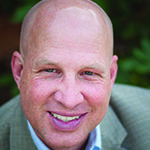 I have to admit that I am a headphone snob with a portfolio of devices. There’s my Bose noise canceling set for lawn mowing and air travel. The in-ear set for motorcycling. The Beats wireless for exercise. If you have to ask why just one pair wouldn’t do … well, you wouldn’t understand.
I have to admit that I am a headphone snob with a portfolio of devices. There’s my Bose noise canceling set for lawn mowing and air travel. The in-ear set for motorcycling. The Beats wireless for exercise. If you have to ask why just one pair wouldn’t do … well, you wouldn’t understand.
Actually, I’m a noise snob. My best birthday present in recent years was a set of custom ear plugs from an audiologist. It’s been the best thing for what my wife, Mary, calls my “sleep hygiene” in years. And I refuse to ride a Harley (“potato-potato-potato”), just because they’re so obnoxiously loud.
Fortunately for people like me who struggle with loud, the future of noise is that there may be less of it. Yes, given global urbanization and population booms, cities will continue not to sleep and to hum constantly. Today, the average background hum (traffic, yelling, sirens) of a U.S. city is 70 decibels. While countries like Germany have strong social norms for quiet hours, that’s rare in North America. So what might give hope for more quiet in the future?
The big factor will be that our cars in years to come won’t make as much racket. As electric cars become more popular — and they will — researchers at the Sound Studies Lab at the University of Copenhagen predict that horns and sirens will be quieter, too. Notre Dame scientists point to a Phoenix experiment with “quiet pavement” made of rubberized asphalt or smooth concrete that cuts traffic noise 6 to 12 decibels. Some predict that roads could become too quiet, warning of the needs to require at least minimal amounts of noise so that pedestrians can hear cars coming.
There will be other changes as well. In the lawn, we will see fewer deafening two-stroke engine leaf-blowers as battery technology improves and electric units become powerful enough to replace them. Already in New York City, construction crews use electric jackhammers, half as loud as traditional ones. Drone delivery could take significant truck traffic off the road. And FAA and NASA engineers are making steady progress on building quieter airplanes.
“For God alone, my soul waits in silence,” says Psalm 62. Writers like Dallas Willard and Richard Foster have long claimed that the fundamental disciplines of the Christian life are founded in silence, and the deep listening to God that can only occur in intentional quiet. Silence can be a gift, but it is also profoundly unnerving to many people who are habituated to constant talking and noise. I have been in Baptist worship services (admittedly rare) that call for a 1 to 3 minute period of silence; invariably, I hear the sniffles of people weeping when they are quiet even that briefly. Will our Baptist tribes learn how to dwell well in silence? When the future is quieter, that will become an essential competency.
